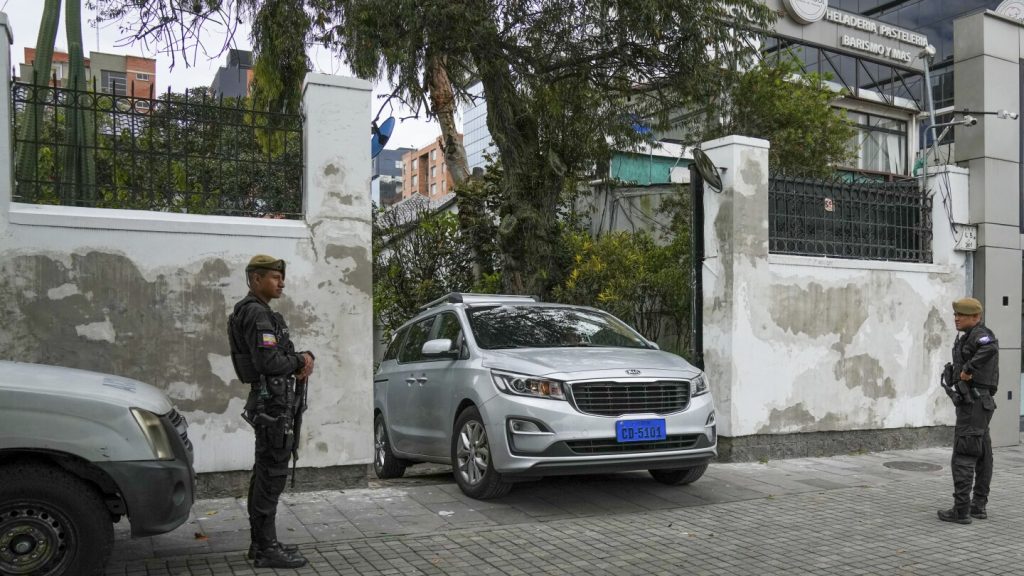President Andrés Manuel López Obrador of Mexico has been involved in numerous diplomatic disputes in Latin America, resulting in several Mexican ambassadors being expelled from countries in the region. Despite his efforts to restore Mexico’s reputation as a diplomatic leader in Latin America, his criticisms of conservative governments have strained relations with countries like Ecuador, Peru, and Bolivia. López Obrador’s nostalgic approach to foreign policy, reminiscent of Mexico’s old ruling party, has not adapted to the region’s recent political shifts from left to right.
Mexico’s dispute with Ecuador escalated when the Mexican government granted asylum to an official from the former leftist government of Rafael Correa, who is facing corruption charges. Ecuadorian police presence outside the Mexican Embassy in Quito raised concerns of a potential raid to arrest the official, further straining relations between the two countries. López Obrador’s critical comments about Ecuadorian President Daniel Noboa and alleged interference in the country’s elections sparked controversy and drew personal criticism from the daughter of an assassinated Ecuadorian presidential candidate.
Additionally, López Obrador’s attempts to lead a resurgence of leftist ideology in Latin America have faced challenges, as other leaders in the region, like Brazil’s President Luiz Inácio Lula da Silva, have taken more proactive stances on international issues. Lula da Silva’s engagement in foreign policy and diplomatic efforts have positioned him as a more influential figure in Latin America, while López Obrador’s focus on domestic issues and minimal international trips have limited his impact on the regional stage. The upcoming G20 summit in Rio de Janeiro will bring global leaders together, highlighting the contrast between active diplomatic engagement and limited involvement.
Despite his aspirations for Mexico to play a prominent role in Latin American affairs, López Obrador’s foreign policy approach prioritizes maintaining a positive relationship with the United States. While he may adopt leftist rhetoric in Latin America, especially regarding countries like Cuba, Mexico’s stance on key issues aligns closely with U.S. interests. López Obrador’s cooperation with the U.S. on migration and border security demonstrates his willingness to comply with American demands, underscoring the importance of the economic ties between the two countries. As Latin America witnesses rapid political shifts, Mexico’s foreign policy strategy remains closely linked to its relationship with the U.S.
In contrast to López Obrador’s limited engagement on the international stage, leaders like Lula da Silva have seized opportunities to showcase Brazil’s diplomatic influence and strengthen ties with other countries. Lula da Silva’s active participation in global affairs, including hosting world leaders and addressing major issues like Russia’s invasion of Ukraine and the conflict in Gaza, has solidified Brazil’s position as a key player in international relations. While López Obrador may harbor nostalgia for past foreign policy approaches, the evolving landscape of Latin America demands a more dynamic and strategic approach to diplomacy.
As tensions escalate with Ecuador and other Latin American countries, López Obrador faces challenges in asserting Mexico’s diplomatic leadership in the region. The president’s nostalgic vision for Mexican foreign policy clashes with the realities of rapidly changing political dynamics and shifting ideological landscapes. While maintaining strong ties with the U.S. remains a priority for Mexico’s foreign policy, López Obrador’s confrontations with other Latin American governments underscore the complexities and intricacies of regional diplomacy in a time of uncertainty and transition.


